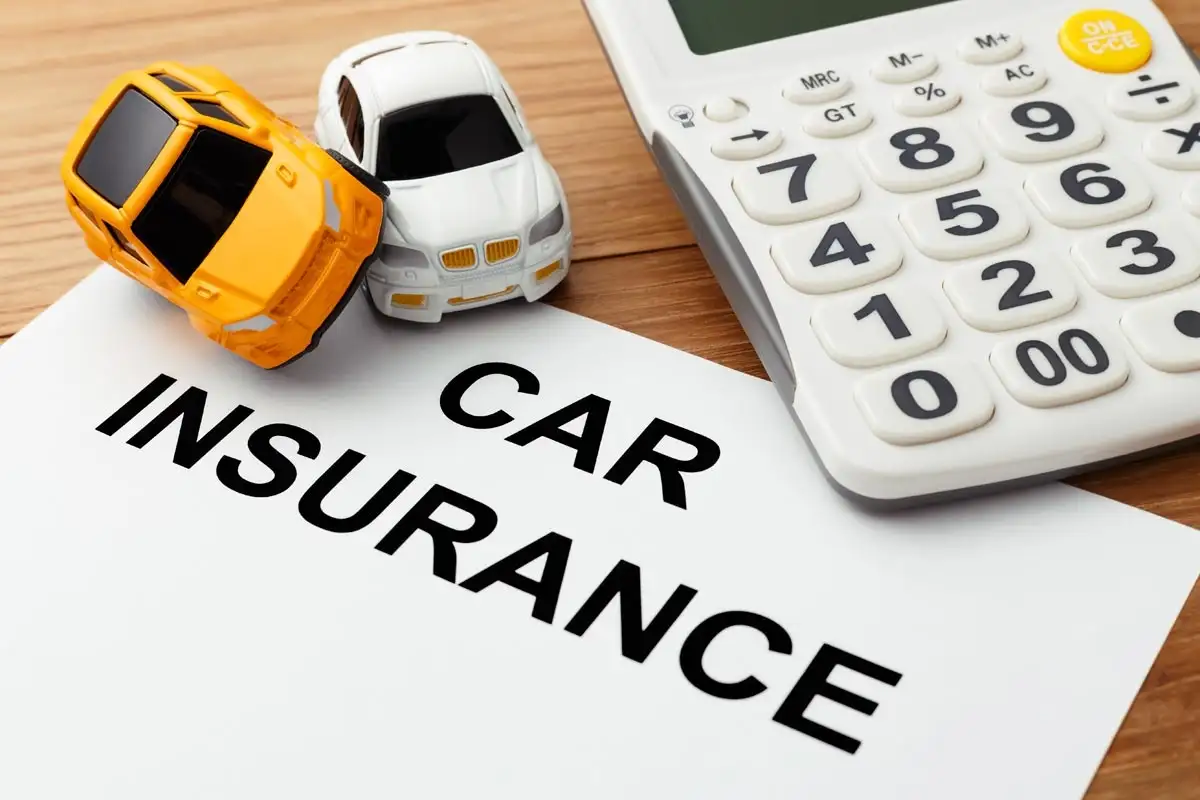Running a business is a rewarding journey, but it also comes with various risks. Whether you’re a sole proprietor, a small business owner, or managing a growing enterprise, protecting your business assets and operations should be a top priority. One of the best ways to mitigate these risks is by investing in the right type of business insurance. But with numerous options available, the big question remains: What type of business insurance do you really need?
This article will help you navigate the complex landscape of business insurance, outlining the different types available, their importance, and how to determine which ones are necessary for your specific business.
Key Takeaways
- Business insurance protects against financial loss from property damage, legal claims, and employee injuries.
- Essential policies include general liability, property, professional liability, and workers’ compensation.
- Specialized policies like cyber liability and D&O insurance may be needed based on industry and business size.
- Evaluate your risks, understand legal requirements, and work with professionals to build a customized coverage plan.
- Review your policies annually to ensure they match your current business needs.
Why Business Insurance Matters
Business insurance protects your company against losses from unforeseen events such as property damage, legal claims, theft, and employee injuries. Without it, your business could face significant financial hardship or even closure. Insurance offers peace of mind and financial stability, allowing you to focus on growth and operations.
In many countries, certain types of business insurance are legally required. Others, while optional, are highly recommended based on the industry and size of your business.
Types of Business Insurance You Should Consider
General Liability Insurance
This is the most basic and essential type of business insurance. It covers:
- Bodily injuries
- Property damage
- Legal defense costs
- Medical payments
Who Needs It? Every business, regardless of size or industry. Whether a customer slips and falls in your store or a client claims your service caused damage, general liability insurance is crucial.
Professional Liability Insurance (Errors & Omissions)
This covers negligence claims due to mistakes or failure to perform.
Who Needs It? Consultants, accountants, lawyers, architects, IT professionals—any business that provides expert advice or services.
Commercial Property Insurance
Covers damage to your physical business assets caused by fire, theft, or natural disasters.
Who Needs It? Businesses that own or lease office space, warehouses, or storefronts, as well as companies with significant inventory or equipment.
Workers’ Compensation Insurance
Provides wage replacement and medical benefits to employees injured on the job.
Who Needs It? Employers with one or more employees (varies by jurisdiction). This insurance is often mandatory.
Business Interruption Insurance
Covers lost income if your business is forced to shut down temporarily due to a covered event (like fire or flood).
Who Needs It? Any business that relies on physical locations to generate income.
Cyber Liability Insurance
Protects against data breaches, cyberattacks, and other IT-related threats.
Who Needs It? Any business that stores customer data or relies on digital infrastructure.
Product Liability Insurance
Covers legal costs if a product you manufacture or sell causes harm.
Who Needs It? Manufacturers, wholesalers, distributors, and retailers.
Commercial Auto Insurance
Covers vehicles owned and used by your business for work purposes.
Who Needs It? Companies with fleets, delivery services, or employees using vehicles for business.
Directors and Officers (D&O) Insurance
Protects senior executives from personal losses due to legal claims related to their decisions.
Who Needs It? Corporations with boards of directors or officers who make executive decisions.
How to Choose the Right Business Insurance
Assess Your Risks
Start with a risk analysis. Think about the potential events that could disrupt your business operations or finances.
Understand Legal Requirements
Check with local and national laws to understand which types of insurance are required for your business.
Evaluate Your Industry
Different industries have different risk profiles. A construction firm, for instance, has very different insurance needs than an online retail store.
Consider Your Business Size and Structure
Larger businesses may need more comprehensive coverage. Also, consider if you’re a sole proprietor, partnership, or corporation.
Work with an Insurance Broker
A qualified broker can assess your needs and recommend a customized insurance package.
Review Regularly
Business needs change. Reassess your insurance coverage at least annually.
How Can Small Businesses Afford Comprehensive Insurance Coverage?
Detail:
Many small businesses hesitate to invest in full insurance coverage due to cost concerns. This article can explore affordable insurance strategies such as bundling policies (e.g., BOPs), working with independent brokers, adjusting deductibles, and industry-specific plans. It can also include case studies showing how underinsured businesses suffered during lawsuits or natural disasters.
What Are the Hidden Risks of Running a Business Without Insurance?
Detail:
This article would walk through potential consequences like personal liability, lost inventory, data breaches, employee injury lawsuits, and customer claims. It can include hypothetical real-life scenarios where business owners lost everything due to lack of coverage, and contrast that with insured companies that bounced back.
Why Is Cyber Insurance No Longer Optional in 2025?
Detail:
As cybercrime continues to evolve, this article can cover the explosive rise of ransomware, phishing, and data leaks affecting even small businesses. It would detail what cyber insurance covers, such as recovery costs, public relations support, and third-party liability. It can also touch on regulatory compliance like GDPR or India’s DPDP Act.
How to Create a Business Insurance Checklist for Your Startup
Detail:
A practical, step-by-step guide for new entrepreneurs. Topics include risk assessment, must-have policies for first-time founders, how to estimate insurance costs in a business plan, and how to renew or adjust coverage as your business grows. It can include a downloadable checklist.
What Does Business Interruption Insurance Really Cover—and What It Doesn’t?
Detail:
Break down common misconceptions about business interruption insurance. Many business owners wrongly assume it covers any type of income loss. This article can clarify that it only applies to covered events and doesn’t apply to pandemics or slow seasons unless specified. Include how to file claims and ensure proper documentation.
How Can Industry-Specific Insurance Policies Protect Your Business Better?

Detail:
Focus on how specialized policies are more effective than generic ones. Examples:
- Restaurants may need food contamination coverage.
- Contractors may require tools and equipment insurance.
- Tech startups may need intellectual property protection.
This article can provide a chart or table comparing industries and their best-fit insurance types.
What Is Product Liability Insurance and Why Do You Need It Before Launching a Product?
Detail:
Focus on the risks businesses face when launching physical products—from design flaws to packaging errors. Highlight legal risks, especially for food, electronics, and children’s products. It can include global case studies of recalls and lawsuits to stress the importance of this coverage.
Is a Business Owner’s Policy (BOP) Right for You?
Detail:
Explore the components of a BOP: general liability, property, and often business interruption insurance in one package. Discuss who qualifies, the advantages of bundling, and the cost-effectiveness for small businesses. Include examples of add-ons like crime or equipment breakdown coverage.
How Do You File a Successful Business Insurance Claim?
Detail:
A complete guide on the claim filing process: documenting damage, contacting your provider, working with adjusters, and following up. Include tips on increasing your approval chances and avoiding common mistakes that lead to claim denials.
How Is Business Insurance Evolving in a Post-Pandemic World?
Detail:
Examine how COVID-19 reshaped risk assessment and insurance needs. Topics can include remote work liability, coverage for public health shutdowns, and the rising demand for business continuity plans. Also explore how insurers are updating their policies to adapt to this new normal.
What Are the Most Common Business Insurance Mistakes and How Can You Avoid Them?
Detail:
Explore errors such as underinsuring assets, skipping liability coverage, failing to update policies, or misunderstanding exclusions. Break down each mistake with examples and explain how regular policy reviews, professional advice, and proper documentation can prevent these costly issues.
Does Your Home-Based Business Need Separate Insurance?
Detail:
Many entrepreneurs assume their homeowners’ insurance will protect their business. This article can outline why it doesn’t cover things like business property, customer injuries, or data breaches. Include recommended coverages such as home office insurance, liability protection, and product liability for handmade or resold goods.
How Can Business Insurance Help You Win Contracts and Build Credibility?
Detail:
Some clients and government agencies require proof of insurance before signing contracts. Explain how having the right policies boosts trust, shows professionalism, and can be a competitive advantage in industries like construction, IT services, and consulting.
What Is Key Person Insurance and Why Should You Have It?
Detail:
Focus on protecting your business from the loss of a founder, partner, or top executive. Explain how this policy provides financial support and stability during a transitional period. Discuss how to assess value, select beneficiaries, and include this insurance in succession planning.
What’s the Difference Between General Liability and Professional Liability Insurance?
Detail:
Clarify the confusion between these two critical coverages. Offer a side-by-side comparison with examples: e.g., physical injury in a store (general liability) vs. financial loss due to bad advice (professional liability). Help business owners understand when they need both.
How Do You Choose the Right Business Insurance Provider?
Detail:
Cover key factors like customer service, claims history, specialization in your industry, financial stability, and digital access. Include a comparison checklist and suggestions for vetting providers through reviews, recommendations, and licensing boards.
How Can Seasonal Businesses Get Flexible Insurance Coverage?
Detail:
Some businesses operate only part of the year (e.g., event vendors, ski resorts, landscaping). Explain how to tailor policies based on seasonal risks and revenue cycles. Discuss options like short-term policies, pay-as-you-go workers’ comp, and temporary coverage.
What Role Does Business Insurance Play in Disaster Recovery and Crisis Management?
Detail:
Dive into how insurance supports disaster preparedness—covering everything from rebuilding physical space to covering lost income, replacing inventory, and relocating operations. Link it to risk management and business continuity planning strategies.
Is Your Business Insurance Keeping Up with Your Company’s Growth?
Detail:
As a business scales—more employees, assets, locations, or services—so do its risks. Show readers how to reassess policies regularly, adjust coverage limits, and avoid being underinsured as they grow. Highlight milestones that should trigger a review.
How Does Business Insurance Impact Your Tax Deductions and Financial Planning?
Detail:
Business insurance premiums are often tax-deductible. This article could cover which types qualify, how to document expenses, and where to include them on your tax return. Add tips on aligning insurance strategy with overall business budgeting and forecasting.
How Can You Customize a Business Insurance Policy for Your Specific Industry?
Long Description:
No two industries face the same risks—what works for a tech startup doesn’t suit a construction company. This article would explore how businesses can tailor insurance policies to fit their exact needs, using endorsements, add-ons, and industry-specific coverage. It can include mini-guides for different sectors like healthcare, hospitality, transportation, and retail. Real-world examples and insurer recommendations can make this piece valuable for businesses looking for niche protection.
What Should You Look for in a Business Interruption Insurance Policy?
Long Description:
Many business owners don’t fully understand the fine print of their business interruption policies until disaster strikes. This article could examine coverage scope (net income, operating expenses, payroll), exclusions (pandemics, partial shutdowns), claim triggers, and restoration periods. It should also guide how to estimate income loss accurately and maintain proper documentation. Ideal for businesses looking to protect their cash flow and stay afloat during unforeseen closures.
How Do Natural Disasters Affect Your Business Insurance Coverage?
Long Description:
With climate change increasing the frequency of floods, wildfires, hurricanes, and earthquakes, this article would explore how well standard policies protect against natural disasters—and where they fall short. Topics include the importance of riders, separate disaster-specific policies, business continuity planning, and understanding location-based risk assessments. It could include global case studies of insured and uninsured businesses post-disaster.
Why Do Tech Startups Need Specialized Insurance Coverage?
Long Description:
Tech companies face unique challenges like IP theft, software bugs, venture capital risk, and cyber breaches. This article could outline how tech startups can safeguard themselves with cyber liability insurance, intellectual property insurance, technology errors & omissions (Tech E&O), and directors & officers (D&O) policies. It could also offer advice on selecting coverage levels based on growth stages—seed, series A, and scale-up.
How to Reduce Your Business Insurance Premiums Without Sacrificing Coverage

Long Description:
Cost-saving strategies for businesses that want solid coverage without overpaying. Topics include increasing deductibles, bundling policies, improving workplace safety, reducing claims history, and choosing the right provider. The article can also offer insights into premium calculations, such as how payroll, revenue, and industry impact pricing. Include comparison tools or a sample cost breakdown by business type.
What Is Commercial Umbrella Insurance and When Do You Need It?
Long Description:
Commercial umbrella insurance provides additional liability coverage beyond the limits of existing policies like general liability or commercial auto. This article would explain scenarios where umbrella coverage is crucial—such as lawsuits involving large settlements or accidents involving multiple parties. Discuss which businesses are most at risk for high-liability claims and how to calculate appropriate limits.
Is Your E-Commerce Business Protected with the Right Insurance?
Long Description:
E-commerce businesses often overlook risks like data breaches, shipping losses, product liability, and third-party platform issues. This article would examine the essential policies for online retailers, including cyber liability, product liability, and shipping insurance. It could also explore coverage for dropshipping models, warehousing, and returns handling. Include insights into Amazon seller insurance requirements or Shopify integrations.
What Business Insurance Do Freelancers and Consultants Actually Need?
Long Description:
Many freelancers and independent contractors operate without insurance, not realizing the legal and financial risks. This article can guide readers through essential policies like professional liability, general liability, and cyber liability. It can also explain the difference between self-employed and incorporated insurance requirements and offer tailored advice for fields like design, coaching, finance, and tech.
How to Conduct a Business Insurance Risk Assessment from Scratch
Long Description:
Before buying insurance, businesses need to know what they’re insuring against. This in-depth guide walks through how to perform a thorough internal risk audit. Topics include evaluating physical risks, financial risks, legal exposure, operational vulnerabilities, and employee safety. The article can include templates, risk maps, and industry benchmarks for comparison.
What Is the Role of Business Insurance in Franchise Operations?
Long Description:
Franchises operate under a unique structure where both franchisors and franchisees have insurance needs. This article explores which policies are required by franchise agreements (e.g., brand protection, business interruption) and which are optional but wise (e.g., cyber, EPLI). It can include guidance on coordinating coverage between parent brands and local operators and how claims are handled across entities.
How Can Employers Protect Themselves with Employment Practices Liability Insurance (EPLI)?
Long Description:
In today’s legal landscape, businesses are increasingly vulnerable to claims from employees alleging harassment, wrongful termination, discrimination, or retaliation. This article would explore how EPLI coverage shields employers from costly legal battles and settlements. It can outline what the policy includes and excludes, how it complements workers’ compensation, and why even small teams should consider this protection. Include recent case studies to show the rising frequency of such lawsuits.
What Is the True Cost of Being Underinsured in Business?
Long Description:
Being underinsured can be just as risky as having no insurance at all. This piece would break down the hidden costs of inadequate coverage: business downtime, legal expenses, brand damage, and even personal asset loss. Use examples of partial coverage in fire damage, lawsuits, or cyberattacks to show how policy gaps lead to catastrophic losses. Offer a guide on how to properly calculate adequate coverage for different business types.
Can Business Insurance Cover You During a Lawsuit or Legal Investigation?
Long Description:
This article can guide readers through the various types of policies that offer legal defense coverage—like general liability, D&O insurance, and professional liability. It should explain how these policies cover attorney fees, settlements, court costs, and what limitations exist. Include a flowchart of what happens when a claim is filed against your business and how insurers typically respond.
What Insurance Do You Need When Expanding Your Business to a New Location?
Long Description:
Scaling operations into new cities, states, or countries introduces new risks. This piece would examine location-specific insurance requirements, zoning issues, property coverage adjustments, workers’ compensation in new jurisdictions, and updating liability limits. The article can also address coverage for leased vs. owned properties and the importance of international business insurance for global expansions.
How Does Insurance Work for Gig Economy Businesses and Platforms?
Long Description:
Gig platforms like delivery apps, ride-sharing services, or freelance marketplaces face unique insurance challenges. This article would explore how platforms can protect themselves and their workers with occupational accident insurance, commercial auto, general liability, and even platform liability policies. It could also explore insurance options for gig workers and how platforms are evolving to meet regulatory demands.
What Is Business Credit Insurance and When Should You Get It?
Long Description:
Business credit insurance (also known as trade credit insurance) protects companies from non-payment by clients. Ideal for companies with high accounts receivable or those exporting goods, this article could walk through how this type of insurance works, what it covers (like insolvency or late payments), and how it supports cash flow stability. Include benefits for international trade businesses and tips on choosing the right provider.
How Do Business Insurance Requirements Differ by Country or State?
Long Description:
This piece would compare how insurance regulations vary across regions, making it useful for global or interstate business operators. For example, workers’ compensation rules in California vs. Texas, or cyber liability requirements in the EU vs. India. Include a table comparing coverage mandates, recommended policies, and regional penalties for non-compliance.
Why Business Insurance Reviews Should Be Part of Your Annual Financial Planning
Long Description:
Many business owners overlook their insurance policies until it’s too late. This article would emphasize the importance of reviewing coverage during annual planning or after major changes (new hires, new products, expanded locations). It can offer a checklist and highlight key triggers for policy updates—like increasing revenue or acquiring equipment.
How Can Business Insurance Help You Secure Funding or Partnerships?
Long Description:
Investors and lenders often assess risk as part of their due diligence. This article could explore how comprehensive insurance demonstrates business maturity, protects investor capital, and satisfies loan covenants. It can also explain how having D&O insurance or liability policies can facilitate smoother deals, build trust with stakeholders, and make your business more investable.
What Insurance Do You Need When Hiring Your First Employee?
Long Description:
The transition from solopreneur to employer comes with legal and financial obligations. This article would guide new business owners through mandatory coverages like workers’ compensation, unemployment insurance, and employer liability. It can also explore optional protections like health benefits, EPLI, and employee dishonesty insurance. Perfect for startups and growing Freelancers.
Also read : Do You Really Need Travel Insurance for International Trips?
Conclusion
Business insurance isn’t a luxury; it’s a necessity. The right policies protect not just your financial interests but also your brand’s reputation and operational continuity. While no single insurance fits all, understanding your unique risks and selecting a tailored insurance plan can safeguard your business for the long haul.
The investment you make in business insurance today can be the very thing that ensures your company survives and thrives through tomorrow’s challenges. Don’t wait for a disaster to strike—prepare and protect your business now.
FAQs
Is business insurance mandatory? A: Some types, like workers’ compensation and commercial auto insurance, may be legally required depending on your location and operations.
Can I bundle different types of business insurance? A: Yes. Many providers offer Business Owner Policies (BOPs), which combine general liability and property insurance at a reduced cost.
How much does business insurance cost? A: It varies based on your industry, location, size, and coverage needs. General liability might cost a few hundred dollars annually, while broader policies can cost thousands.
Does business insurance cover lawsuits? A: Yes, most liability policies cover legal fees, settlements, and court judgments.
What happens if I don’t have business insurance? A: You risk financial loss, legal penalties, and potentially losing your business if faced with a major incident or lawsuit.
How do I file a claim? A: Contact your insurer as soon as an incident occurs. Provide documentation, and work with your insurance adjuster to process the claim.
Are home-based businesses covered under homeowners insurance? A: Typically not. You may need separate or additional business insurance to cover inventory, equipment, and liability.



